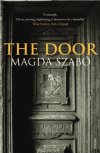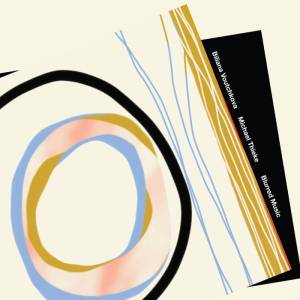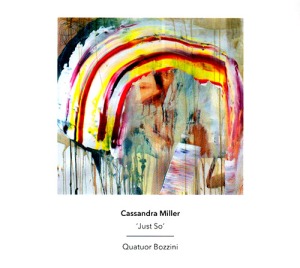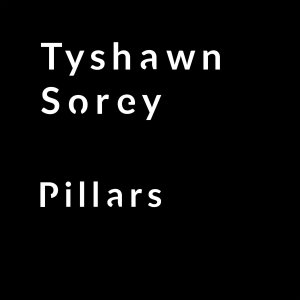As life continues to happen, this year’s posting ratio again slowed down a bit, but still the reader base keeps expanding if I have to believe WordPress stats. As always, a genuine thank you to everyone who has read, liked, linked or commented. My best wishes for 2019!
I’ve started 31 titles in 2018, a bit more than last year, but I DNFed 4 of those – a bit more than usual as well. I added more art books into the mix, and that trend will probably continue. I tend to read books on art a bit differently than regular fiction, more in small doses, a few pages each time, so it takes me a lot longer to finish them. I’m reading 2 at the moment: the treasure trove that is Nico Dockx Talks To Dennis Tyfus and Metzger & Walther’s Van Gogh, The Complete Paintings – which includes a detailed artistic biography drawing heavily from the letters. I would included both of those in my best of list below if I had finished them this year. Books on James Turrell, Bernd & Hilla Becher, Cy Twombly and Picasso are in the queue.
Anyhow, below are the books I gave a 5-star rating on Goodreads in 2018 – only 5 in total – in no particular order. For starters Blindsight though – which I gave 4 stars, yet I feel it still belongs in my year-end list. Click on the covers for the review.
After the books, music and some television.
Blindsight (2006)
Hard deterministic SF about first contact, our brain and the nature of intelligence. Dense in content, rich in ideas. Not perfect, but a more than solid read nonetheless. Some people tend to find Watts’ deterministic outlook bleak and oppressive, but they err, understandably clinging to prescientific, self-delusional intuitions, because, as Watts wrote, “Brains are survival engines, not truth detectors.” Yet ultimately, determinism sets us free. It ain’t no sin, son, to be forgiven.
The Door – Magda Szabó (1987)
The book with the largest target audience from this list – not speculative fiction, although it has small hints of something that resembles a Slavic fairytale. A book about loss, and how humans deal with it. Harsh and tender – literature at peak power. There has been some buzz around this book, for once well deserved. Originally in Hungarian, you could read it in other languages too, including Dutch.
Version Control – Dexter Palmer (2016)
A brilliant book, but I suspect only people of about the same age as Palmer might truly ‘feel’ it – those that came of age while computers and the internet dawned, and are living a significant part of their lives online – witnessing the keyboard culture wars and questioning their phone habits – but still old enough to remember how it used to be. Set in an uncanny now-in-a-couple-of years, it’s also a very contemporary book, rich in themes, but never preachy. A time travel tale that’s more about a thirty-something woman coming to terms with her life and the loss of her son than about flashing devices, and the only time travel story I know of with no inherent paradox. Visibly constructed, yet emotionally powerful, a tour de force from a literary viewpoint.
Zero K – Don DeLillo (2016)
What can I say? Even better than White Noise. The fact that this book was written by DeLillo at the end of his 7th decade amazes me. There’s only very few artists capable of what DeLillo did here: stay on the beat in the winter of his life, and at the same time setting his own pace. Without being experimental or outré, Zero K is confidently its own thing. This is fresh, relevant stuff, that’s only on the surface about cyrogenics. Fresh and relevant, yes, but this is no book a thirty-something could have written, as in the end this is a deeply poetic reflection on death at hand and “the thinness of contemporary life.”
The Vital Question – Energy, Evolution and the Origins of Complex Life – Nick Lane (2015)
What a juggernaut this is. It deals with the latest in the research about the origins of life, and while it once was a question too hard to answer, over the last decade real progress has been made. The question from the title deals with why all complex life is the way it is (including sex & death), and why that differs from bacteria – who evolved for 4 billion years without changing their basic form. Lane’s book is about his own research, and it is both a thesis and a page turner. I have to admit there were a few pages that went over my head, and some sections were maybe too detailed for my tastes, but the bulk of the book is accessible to the layman, that is if you are willing to put in a serious effort, and have brains enough to recall some of the chemistry from high school. Lane’s prose is smooth and snappy. Instantly one of my favorite non-fiction books, with a broad scope – genetics, biology, chemistry, geology: it’s all relevant to the answers. I’ve read praise saying this is on a Copernican level, but I can’t judge that myself.
I read the original, but I’ve noticed it’s available in Dutch too, with the terrible title De Belangrijkste Vraag Van Het Leven.
Schrijven in de Grauwzone – Chris Ceustermans (2018)
Before I end this list, a book in Dutch. A biography of bipolar mad genius JMH Berckmans who passed away 10 years ago. Ceustermans’ account of his life reads like a novel itself, Berckmans’ story often stranger than fiction. A joy to read, even though Berckmans was a tragic figure. He suffered with addiction, poverty and severe mental issues, and was more an author’s author than a well-know figure.
Rembrandt’s Paintings Revisited – A Complete Survey: A Reprint Of A Corpus Of Rembrandt Paintings VI – Ernst van de Wetering (2017)
This is a cheaper edition of the final scientific publication by the Rembrandt Research Project. The previous, extremely detailed installments of the Corpus (I-V) are available for free online, but in certain aspects these are at times a bit dated, as Ernst van de Wetering explains. His foreword and the first few chapters of this final publication read as a kind of artistic thriller – an instructive page turner on how the scientific study of old paintings has advanced over the last half century.
If you have a serious interest in Rembrandt, or even painting in general, you cannot go without this book. Rembrandt’s oeuvre borders on the incredible, and seeing it all together, presented chronologically with detailed notes has been my artistic experience of 2018 – just as reading the mere first 4th of this very same book was already my artistic experience of 2017.
You can get this edition new for about 70 euros or 100 dollars, and that’s a real steal: the original costs over a 1000 euro. ‘Cheaper’ doesn’t mean inferior quality: all prints are outstanding.
I haven’t reviewed this properly, but make no mistake: this is my ultimate read of 2018.
They didn’t get 5 stars, but I’d still like to mention KSR’s Shaman (about a boy in France 32,000 years ago), Watts’ The Freeze-Frame Revolution (about a revolution that’s millions of years in the making on an AI starship making black holes), Lancy’s The Anthropology Of Childhood, the multiverse hit Dark Matter by Blake Crouch and Frank Herbert’s strange tribute to Native Americans Soul Catcher.
I’ve only fully read 3 books published in 2018, so my vote for best book released this year is based on an extremely small sample rate, but in between The Freeze-Frame Revolution, Peter Watts’ novella, the Berckmans’ biography and Brian Olwenick’s Keith Rowe biography, I’d have to pick the Rowe book – as that’s internationally and artistically the most relevant.
Biggest disappointment of this year is Red Moon by Kim Stanley Robinson, a book I did not finish, and won’t review either. I bailed out after 100 pages, bored out of my mind. I think Robinson is getting too transparent & formulaic at this point in his career.
Favorite article by far was R. Scott Bakker’s review of Post-Truth by Lee C. Mcintyre on his blog Three Pound Brain. Bakker uses the review to write a lengthy treatise himself, with sharp insights in how our brain is not a truth detector – like the Watts adagio above – and using that to shed light on the current malaise politics and society is in. It’s not a joyous text, noting that Trump is only the beginning.
It’s quite heavy in terminology, at times a bit arcane even, but here’s a lengthy quote to convince you to give it a shot.
To say human cognition is heuristic is to say it is ecologically dependent, that it requires the neglected regularities underwriting the utility of our cues remain intact. Overthrow those regularities, and you overthrow human cognition. So, where our ancestors could simply trust the systematic relationship between retinal signals and environments while hunting, we have to remove our VR goggles before raiding the fridge. Where our ancestors could simply trust the systematic relationship between the text on the page or the voice in our ear and the existence of a fellow human, we have to worry about chatbots and ‘conversational user interfaces.’ Where our ancestors could automatically depend on the systematic relationship between their ingroup peers and the environments they reported, we need to search Wikipedia—trust strangers. More generally, where our ancestors could trust the general reliability (and therefore general irrelevance) of their cognitive reflexes, we find ourselves confronted with an ever growing and complicating set of circumstances where our reflexes can no longer be trusted to solve social problems.
My best writing this year – and the things I enjoyed writing most – was about the ethics of military space operas like Raven Stratagem & Ninefox Gambit, the multifaceted analysis of Herbert’s Soul Catcher, a rather old school literary analysis of time travel novel Version Control, and a kind of homage to avant-garde guitarist Keith Rowe disguised as a review of his biography.
NON-BOOK FAVORITES
albums of the year
Biliana Voutchkova & Michael Thieke – Blurred Music (elsewhere music)
Reviews by Brian Olwenick, on Dusted Magazine, Toneshift, and also here. Here’s a fragment of Brian’s review: “The methodology used here is fascinating. There’s a base of pre-taped material. The duo sometimes attempts to duplicate these sounds (the “blurred” aspect arising upon the inevitable failure to do so precisely) and sometimes improvises along with/atop it. There’s more to it than that and I may not be understanding it completely. The at-home listener, however, can only rarely distinguish between the taped and live sounds, so experiences the music as a two violin, two clarinet quartet. The first portion of disc 1 is rather active, even frenetic, tending more toward the kind of movement I’d associated with Voutchkova–very gestural and virtuosic, with Thieke (unusually, in my experience) following suit, his clarinet a-bubble and not above the occasional shriek. But soon enough, the music splays out into thick, taffy-like lines, slowly settling into various lovely forms of stasis, then spinning out once more into a soft but energetic space with spit-out breath sounds and quietly strangulated vocals and pizzicato attacks.”
Three discs, each different, filled with radical, addictive and at times very beautiful music.
Cassandra Miller – Just So and O Zomer! (Another Timbre)
These 2 phenomenal classical albums in the second batch of the Canadian Composer Series have caused quite a stir. Reviews in The Guardian, here, here and here. As the people at Squidco wrote: “A disc of extraordinary string works, presenting four string quartets superbly played by the Quatuor Bozzini quartet, including the large work About Bach, awarded the Jules Leger Prize for New Chamber Music.” and “Two ensemble works and two solo pieces by Christian Wolff’s favourite contemporary composer, Cassandra Miller, with brilliant performances by Apartment House, Mira Benjamin, Philip Thomas, and a duet with Charles Curtis on cello and the BBC Scottish Symphony Orchestra, conducted by Ilan Volkov.”
Tyshawn Sorey – Pillars (Firehouse 12 Records)
This one bridges a place somewhere between classical composition and improvisational jazz, and defies categorization, a mammoth three disc feast of creativity. It features an octet, but with lots of open space. Reviews here, here, here and here. One of the discs is fully on Bandcamp, click on the cover to check it out. There’s also a vinyl version, should that be your thing.
other notable 2018 records
Cristián Alvear & Taku Sugimoto – h (Another Timbre)
Keith Rowe, John Tilbury & Kjell Bjørgeengen – Sissel (Sofa Music)
Hon Chulki & Will Guthrie – Mosquitoes and Crabs (erstwhile records)
Michael Pisaro – Étant Donnés (Gravity Wave)
The entire Canadian Composers Series on Another Timbre should get a mention here, not just Cassandra Miller’s albums, but I just haven’t spent enough time with the remaining discs to pick true favorites. If you are interested in contemporary classical music, they are all more than worth your time. There’s links to interviews and sound-clips for each release on the label’s website.
older music discovered this year: highlights
16 Horsepower – Live March 2001 (double cd, Glitterhouse Records)
Burzum – The Ways Of Yore (Byelobog)
Deeds Of Flesh – Reduced To Ashes (Unique Leader)
Bill Dixon – Odyssey (solo 6-cd set, Bill Dixon self-released)
Lennie Tristano & Warne Marsh – Intuition (compilation of 1949 & 1956 material, Capitol Jazz)
Nusrat Fateh Ali Khan – en concert à Paris (5-cd set of 3 concerts in 1985 & 1988, Ocora Radio France)
visual arts
The absolute highlight was an annunciation scene in wood, dating from around 1350 from Sienna, Italy, shown in Musée des Beaux Arts in Lyon, France. Here’s the archangel Gabriel…

television
I’ve finally committed to watching all 5 seasons of Bojack Horseman on Netflix – explaining my reading slump in December. Fantastic, both as a character study and a critique of our times. In a way, this even topples my other favorite animated series, Rick & Morty, as it is much more emotionally powerful, and just as creative. The first season is quite heavy on world and character building, so you have to stick with it, and don’t bail after episode 2 or 3 – this is a show that needs time. The pay-off is worth it, especially in season 3 & 4.
I should also mention the 4th season of Better Call Saul. The series is a Breaking Bad spin-off, but a totally different show – it might be even better. The jury is still out, and much will depend whether Better Call Saul will succeed in packing the same emotional punch when the series will end. It’s looking good so far, and the subdued, slow narrative arc doesn’t depend on the cool thrills of Walter White’s transformation into a kind of larger than life power villain that Breaking Bad had to offer – a rather easy method to get an audience rooting for a character, in retrospect.

If you’re interested in my other favorite lists, and the tab doesn’t show up on your phone, the index is here.
And here‘s the index of all reviews, alphabetically by author.
















Great post, and a good year, it seems – here’s to hope that 2019 will be better! Thanks for sticking around! 🙂
LikeLiked by 1 person
I’ve started on bojack horseman myself. It’s great so far. Just entered the second season.
LikeLiked by 1 person
Good times ahead then!! I’m glad you like it!
LikeLike
I hope 2019 sees a few more posts from you.
LikeLiked by 1 person
Very interesting & comprehensive review of the past year, not just the books… I want to take a closer look at both Bojack and Saul, I’ve seen a few episodes of both but there never was time to continue..
LikeLiked by 1 person
Thanks!! Time is always an issue, especially for tv, as there’s less opportunities to watch: you need a screen and the people you’re living with need to be willing to put up with the noise. Like you I watched 2 episodes of BJ two years ago, and didn’t stick with it. Now it’s one of my favorite shows, it portrays so many things of life accurately. Now that I think abou it, both BJ and BCS are about self-destructive characters, and you don’t see them all that much as the lead on tv.
LikeLiked by 1 person
Blindsight has been on my TBR forever, glad to hear it was a standout for you!
LikeLiked by 1 person
One could say it’s somewhat of a classic, so don’t dwell on it. If you need convincing, maybe start with that 2018 novella first. (I’m also pretty sure you would love The Door, btw.)
LikeLike
Great. Great! Thanks a ton — not. Now I’ve compulsively bought six more books.
*slams door*
[…]
*opens door*
_Ass_.
*slams door again*
LikeLiked by 1 person
Great year end list, you always have some great suggestions. Did you get a chance to hear Pisaro’s Shades of Eternal Night with Reinier van Houdt? I remember you recommending The Earth and the Sky (which I got and love based on that recommendation). This feels like an extension of the in a way. But it’s also completely different. Also, do you know if any of JMH Berckmans’ work had been translated to English? I’ve always been curious about him. Again, thanks for all the good work.
LikeLiked by 1 person
Yes, got that too. Excellent record for sure, but I think Etant Donnés is the more interesting album, breaking a bit more new ground, so I picked that as I didn’t want to flood the list with yet another Pisaro release like I’ve been prone to in the past 🙂
As for Berckmans, one collection of stories got translated in Slovenian, but so far nothing in English.
Thanks for the kind words here, much appreciated!
LikeLiked by 1 person
I’m excited to read about the DeLillo book. It’s going in my 2020 reads for sure, since I loved White Noise.
LikeLike